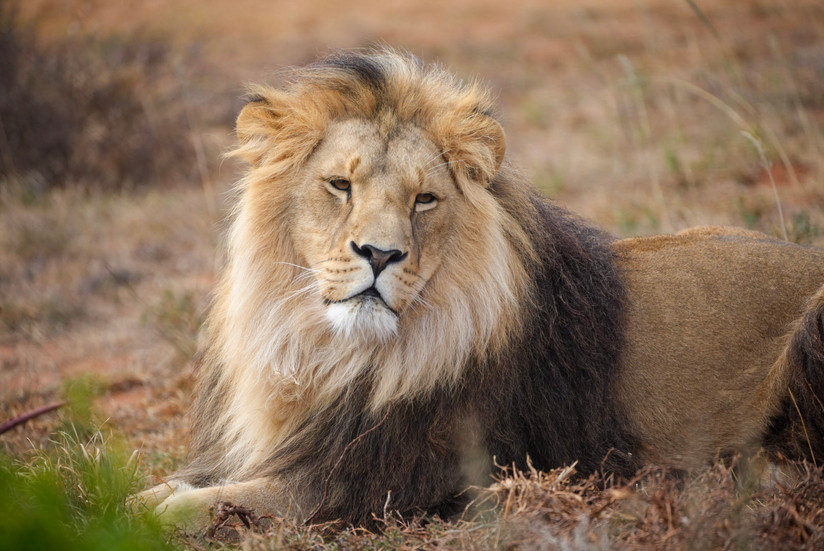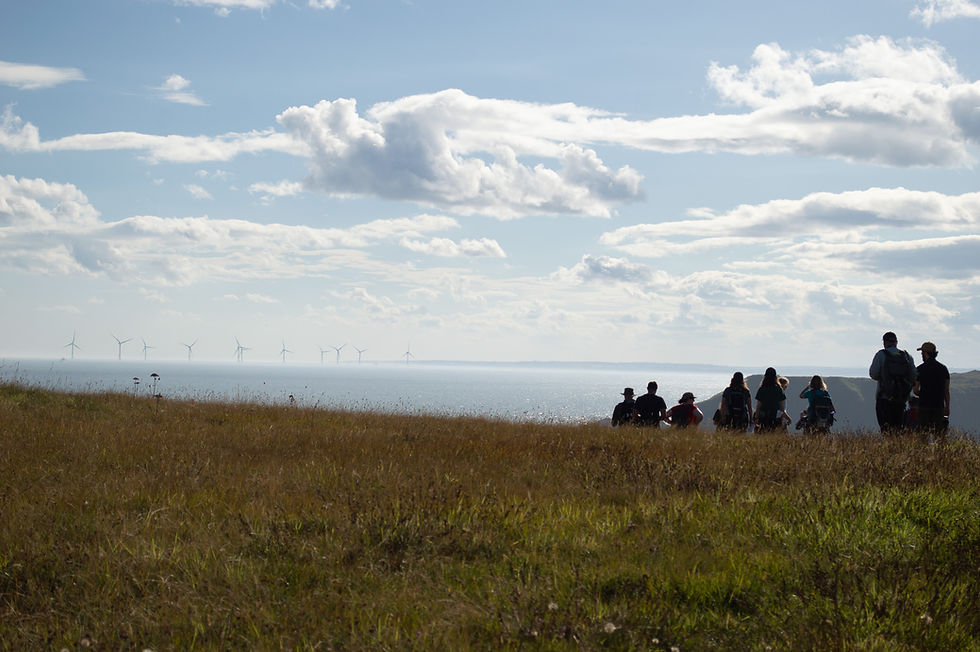Spot the Difference: How to Identify Genuine Ethical Wildlife Experiences
- MOYO Training
- Jul 31, 2025
- 5 min read
Travelling offers a unique chance to connect with nature and wildlife, creating memories that can last a lifetime. However, as a 'Nature Positive' explorer, it's crucial to understand the difference between ethical and unethical wildlife experiences.
Many activities marketed as wildlife watching or volunteering may involve cruelty, exploitation, or even unintentionally causing distress and risk to wild animals. We're here to help you identify the traits of ethical wildlife experiences, ensuring your adventures contribute positively to animal welfare and conservation efforts.
Understand the basics of ethical wildlife experiences
Ethical wildlife encounters prioritise the well-being of animals over mere human entertainment. They focus on education and foster respect for wildlife in their natural settings. For example, reputable animal sanctuaries, like the Shamwari Game Reserve in South Africa, rehabilitates and cares for sick/injured, abandoned or orphaned animals, nursing them back to health before releasing them back into their natural habitats.
In contrast, experiences involving captive animals for entertainment, often fall into the unethical category. These situations exploit the animals for profit, resulting in poor living conditions and psychological distress. A recent study revealed that nearly 80% of captive animals exhibit signs of stress due to confinement.
Image 1) A content lion observed from a distance at Born Free’s Big Cat Sanctuary, Shamwari Private Game Reserve ©dawnwildphoto VS. Image 2) A tame lion kept in captivity for entertainment ©Born Free
Animal sanctuary or tourist attraction?
In recent years, a troubling trend has emerged where tourist attractions pose as animal sanctuaries, allowing visitors to touch, hold, or take selfies with domesticated wild animals. These facilities often market themselves as conservation efforts, but in reality, they prioritise profit over animal welfare.
For instance, places like the Tiger Temple in Thailand (which has since been closed down) have attracted thousands of visitors by enabling them to interact closely with big cats, including sedated lions and tigers. Such experiences can create a false sense of security regarding the treatment of these animals, as they are often kept in inadequate conditions, deprived of their natural behaviours, and subjected to unethical training methods. The allure of getting up close with these majestic creatures can overshadow the serious ethical concerns surrounding their captivity and the impact on conservation efforts.
Do your research
Before booking any wildlife experience, do some thorough research. Look for independent reviews and verify the organisation’s credentials. Ethical sanctuaries or wildlife tours typically have transparent operations. Many, such as the Jane Goodall Institute, encourage visitors to observe their conservation methods and animal care practices.
Be wary of specific language they use. Terms like “interaction” or “hands-on” can indicate potential ethical concerns. Ethical organisations prioritise animal welfare and often discourage direct contact with animals, instead focusing on education and observation.
Look for accredited organisations
When evaluating wildlife experiences, check the organisation’s accreditation. Look for certifications from credible wildlife conservation or animal welfare groups, like the Global Federation of Animal Sanctuaries or World Animal Protection. These accreditations reflect a commitment to ethical practices and high animal welfare standards.
Many reputable sanctuaries and eco-tourism companies promote responsible tourism, highlighting wildlife protection as a core aspect of their operations. On the other hand, unethical organisations often lack certification and may use manipulative marketing tactics to attract visitors. As an example, a 2021 survey revealed that 65% of people who interacted with accredited wildlife organisations felt more educated about animal welfare.
Image 1) Spider monkey wearing a GPS tag as part of a research project at Kawsay Biological Station ©dawnwildphoto VS. Image 2) Domesticated monkey fed by a human ©Pexels/Rachel Claire
Prioritise conservation and education
An ethical wildlife experience will emphasise conservation and education. Look for programs that raise awareness about endangered species and biodiversity. Participants should leave with a better understanding of the challenges animals face in the wild.
Educational initiatives that support conservation efforts reflect a responsible approach to preventing wildlife exploitation. For instance, organisations like the Wildlife Conservation Society funnel a portion of their proceeds into research and protection of endangered species.
There are also many projects worldwide offering volunteering opportunities. Whilst this can be a fantastic way to learn and gain valuable experience in the field, there are lots of options advertised online and it is easy to get scammed into thinking these organisations are legit. This helpful guide from Responsible Travel explains what to look out for.
Ethical experiences ALWAYS avoid exploitative practices, focusing instead on how you can contribute positively to wildlife conservation.
Don't go to the show
According to the World Animal Protection, around 3,000 dolphins and whales are held in captivity around the world, often in aquariums and marine parks. These intelligent creatures are known for their complex social structures and expansive habitats, yet they are confined to small enclosures that do not mimic their natural environments. Over 50% of captive dolphins exhibit signs of stress and abnormal behaviours; and many captive whales have a lifespan significantly shorter than their wild counterparts, with orcas in captivity living only about 30 years on average compared to 50-90 years in the wild.
These conditions highlight the ethical concerns surrounding the captivity of such intelligent and social animals, prompting organisations like the Whale and Dolphin Conservation to advocate for their freedom and protection. The 'Don't Go to the Show' campaign raises awareness about the ethical implications of supporting whale and dolphin performances. By choosing not to attend these shows, individuals can help promote the message that such practices are outdated and inhumane, advocating for the protection and conservation of these magnificent creatures in their natural environments.
Image 1) Dolphins in their natural environment ©dawnwildphoto VS. Image 2) Captive dolphin at SeaWorld ©Robert Linsdell (CC by 2.0)
Why not experience dolphins and whales in the wild instead? There are several ethical alternatives:
Whale Watching Tours: Many coastal regions offer guided tours where visitors can see whales in their natural habitat, often during migration seasons.
Dolphin Watching Expeditions: Similar to whale watching, these expeditions allow people to observe dolphins in the wild, often in their natural social groups.
Snorkeling or Diving Trips: In certain locations, snorkeling or diving with dolphins can provide an immersive experience while respecting their natural behaviours.
These alternatives not only provide you with a more ethical way to enjoy marine life, but also contribute to conservation efforts by raising awareness and supporting local economies.
Your role in ethical wildlife encounters
Sadly, not every encounter with wildlife is ethical, and as a conscious traveller, it’s your responsibility to make informed decisions that align with your values.
Choosing ethical wildlife experiences is vital for promoting animal welfare and supporting conservation efforts. By conducting thorough research, verifying accreditations, emphasising education, and trusting your instincts, you can effectively differentiate between ethical and unethical wildlife encounters.
Your travel choices hold the power to create a positive impact on the world. By selecting experiences that respect wildlife, you not only enjoy nature but also become a responsible steward of our planet. Embrace your journey of exploration while ensuring that every experience is enriching for yourself and the amazing creatures that share our world.
To learn more about Nature Positive Tourism, why not sign up for one of our upcoming training programs?



















Comments